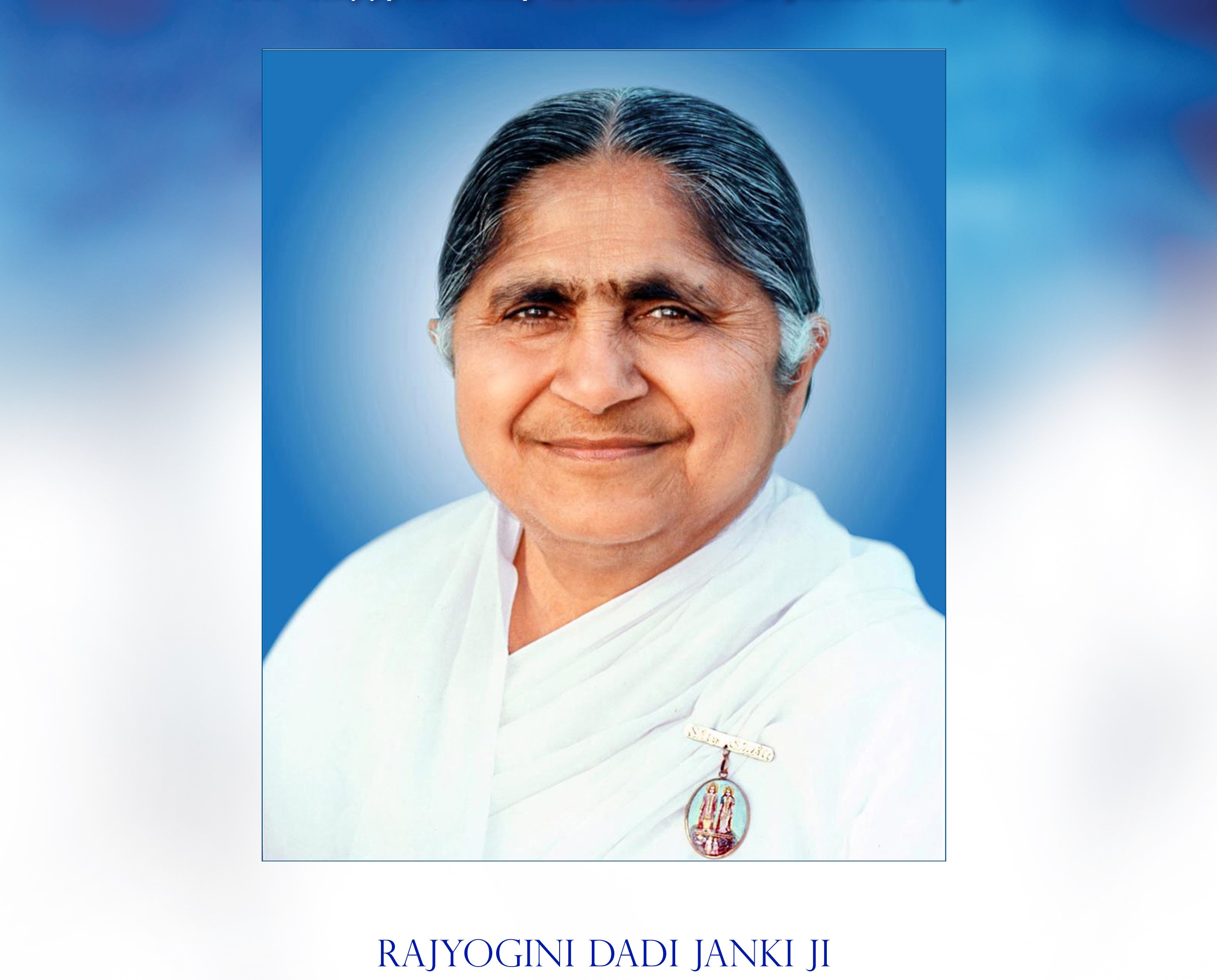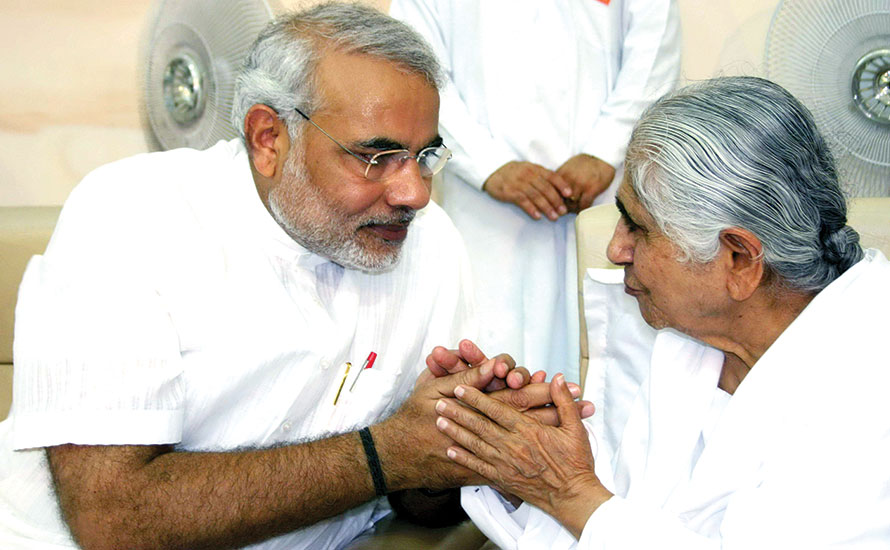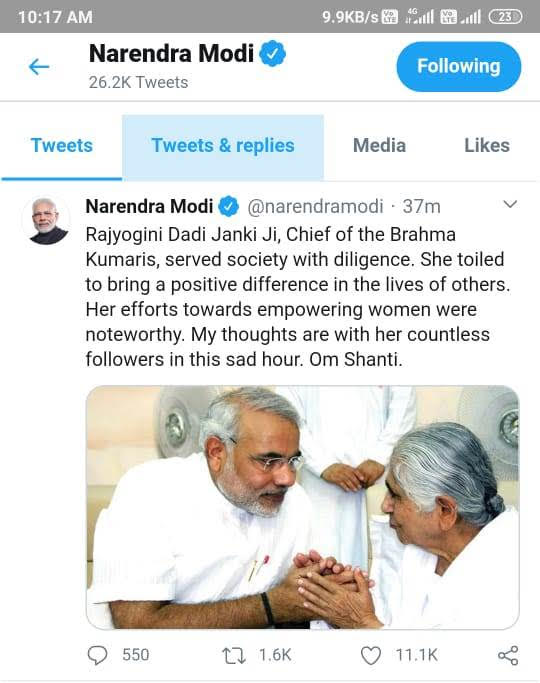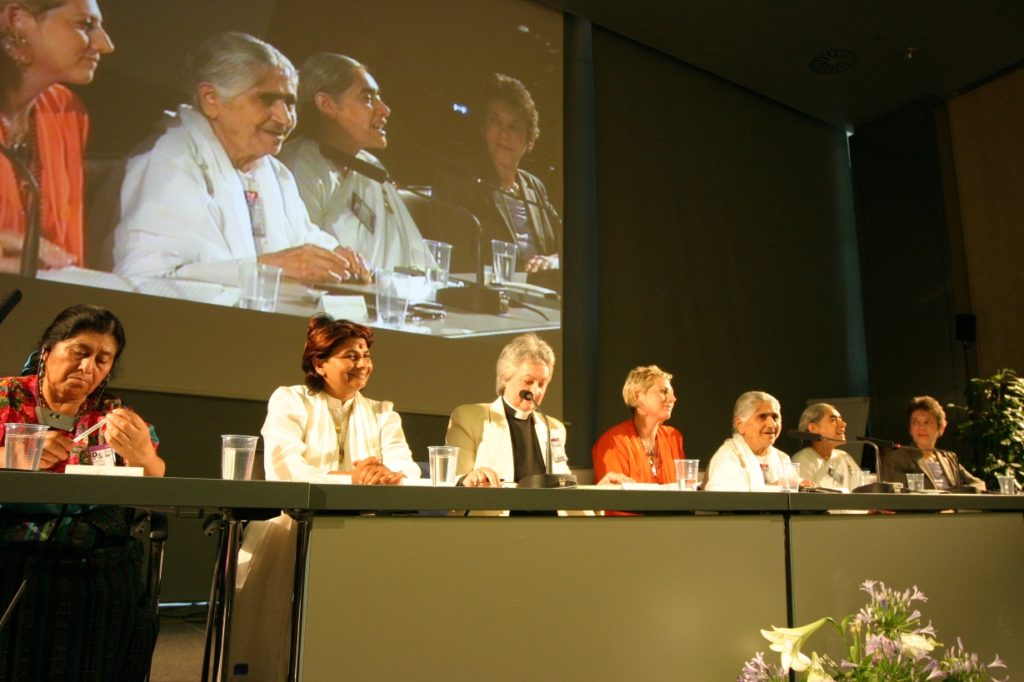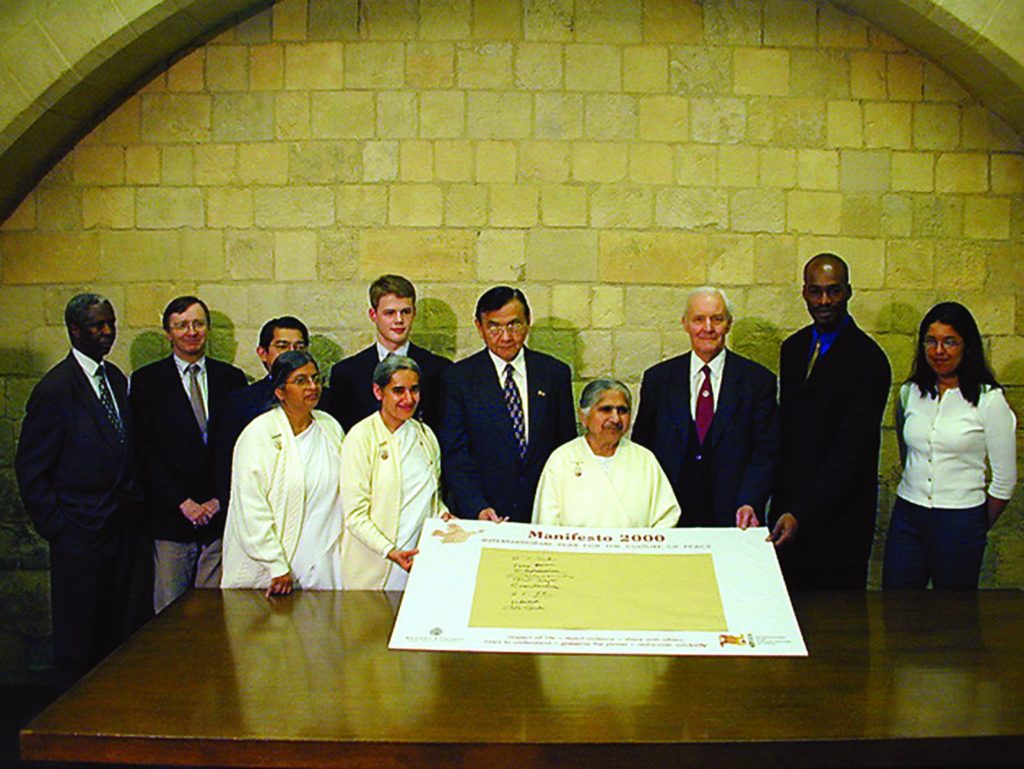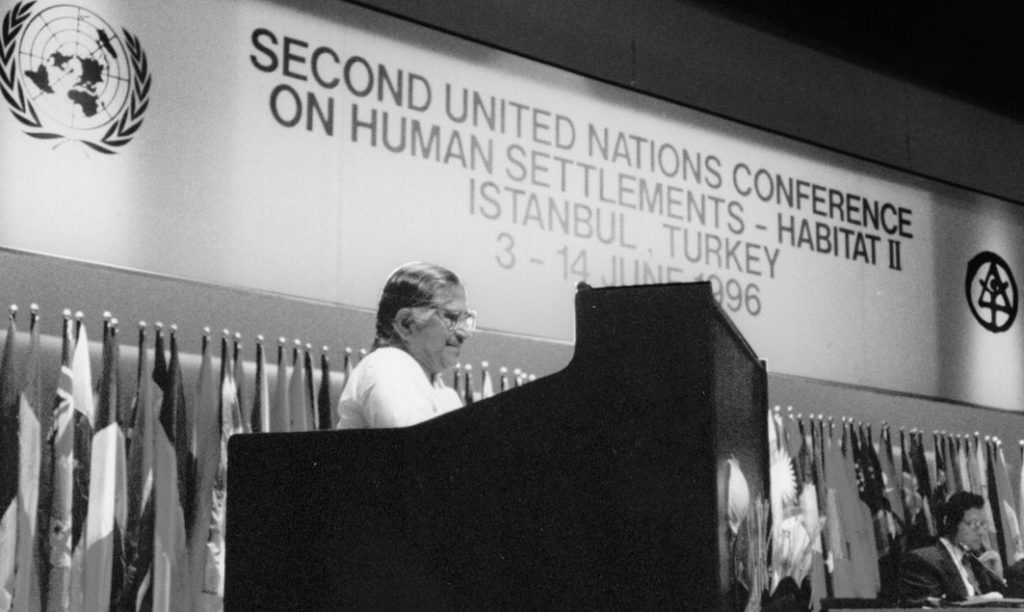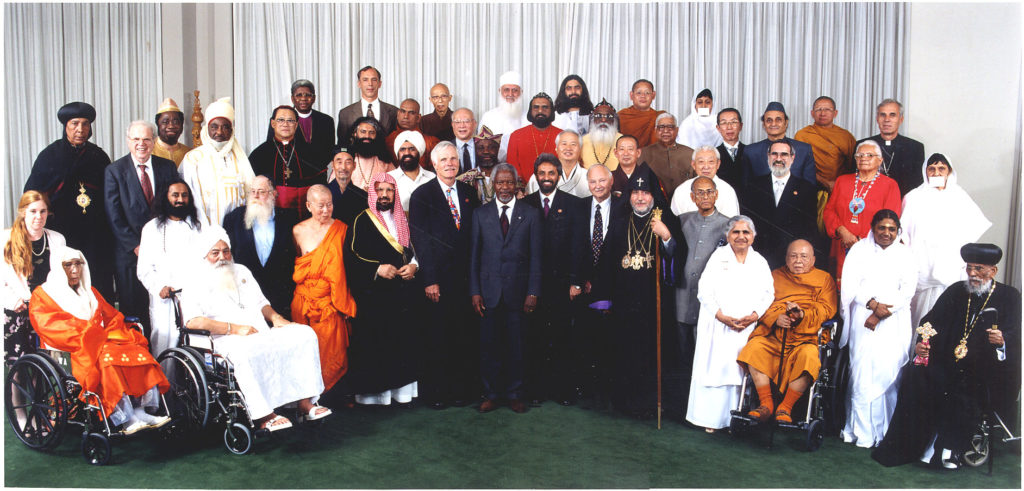Dadi Janki Kirpalani, who led the Brahma Kumaris World Spiritual University, a spiritual movement of over a million people, died on Friday, 27th March, 2020, in Mt. Abu, India. She was 104. The cause was a heart attack.
Born in Sindh, in northern India, it was clear from an early age that she was called to a spiritual life. This was considered impossible in India, where spiritual leaders were almost exclusively men. As with most girls in India at that time, she received only three years of formal schooling. But at her request, her father took her on pilgrimages all over India when she was still a girl, introducing her to many sages and saints. Though she saw impressive demonstrations of devotional practice and special physical powers, none of this satisfied her.
At 19, while walking with her father in her hometown of Hyderabad, Sindh, a province in northern India that became part of Pakistan after the 1947 partition, they encountered Dada Lekraj, a highly respected jeweler in Sindh, whom she had known since childhood. Later she described that encounter as a moment that changed her life. She said that as he approached, his image dissolved into a field of light and she felt transported beyond the physical world into a timeless dimension and engulfed in pure love. Certain that he was somehow connected with the truth she had been seeking, she requested to go to the spiritual gatherings, or satsangs, he had begun holding in his home.
But Indian tradition required that young women be married according to a choice made by their parents, and this was her fate. Newly married, her husband refused her request, making her a virtual prisoner in her home, occasionally even beating her.
Eventually Janki’s father realized he had made a terrible mistake in marrying her off, and helped her escape to Karachi, where a small community that had grown up around Lekraj had moved in 1939. This community eventually became known as the Brahma Kumaris World Spiritual University, and the spiritual knowledge they taught on the soul, God, and time was the focus of the remaining 80 years of her life.
After the 1947 partition of India, the group moved from Karachi to Mt Abu, Rajasthan. Then, in 1974, Janki, now called Dadi, which means “senior sister” or “grandmother” in Hindi, was asked to go to London and to begin serving what they called “the foreign lands.” With a tiny Air India bag and two white saris and knowing only a few words of English, she moved to a small flat in a poor part of the city. A door became her makeshift bed. She very soon met a handful of young westerners who were to become lifelong supporters of the work of the movement outside India. She was also accompanied from those earliest days by Sister Jayanti, daughter of Murli and Rajani Kirpalani, a Sindhi couple already living in London.
Word of the teachings gradually spread across the UK, and then across the world, where the spiritual university now has a presence in about 130 countries.
Those who studied with Dadi Janki during the years in which the movement underwent such massive expansion remember her relentless drive – her sheer force of will – that they should follow her example in study, remembrance of God, and service.
Despite teaching non-attachment, Dadi Janki was not afraid to engage deeply with those she saw as potential helpers in the task of guiding humanity through difficult times ahead. This gave many the inspiration to go beyond normal limitations and to embark on the tough task of personal, social, and world renewal.
She developed real love for those she met abroad, commenting on their honesty, sincerity and openness. And they developed a deep love for her wisdom, courage and persistent friendship that lasted the rest of her life.
She was tireless, accepting invitations to speak in city after city, to be a Wisdom Keeper at the 1992 Rio Earth Summit, and to speak at the United Nations, where in 1983 the Brahma Kumaris had become a non-governmental organization with general consultative status.
She gave equal time and love to those leading ordinary lives and to the scientists, prime ministers and well-known people who came to know her. Robin Gibb of the popular British singing group, the Bee Gees, wrote a song in her honour, “Mother of Love,” that he performed at Wembley Arena in London in 2006.
In 2007, Dadi Prakashmani, the then-head of the Brahma Kumaris, passed on, and Janki was called back to India to lead the organization. She was 91. For the next 13 years, she regularly addressed groups of 20,000 or more at the Mt. Abu headquarters. She took her last international trip in 2019, when she traveled from Dubai to Nairobi, then to London and New York.
Her health began to fail in February. Finally, her small body, fragile since childhood, was taken to the Global Hospital, in Mt. Abu, where breathing difficulties and a heart attack finished her life and service. Normally, an invitation would have gone out to tens of thousands of Brahma Kumaris and their friends and contacts to come to India for a final farewell. But with the covid 19 virus closing borders and grounding flights, her life was celebrated in a small ceremony in the ashram to which she had come in 1950, a simple ending for one who had devoted herself to simplicity and truth.

